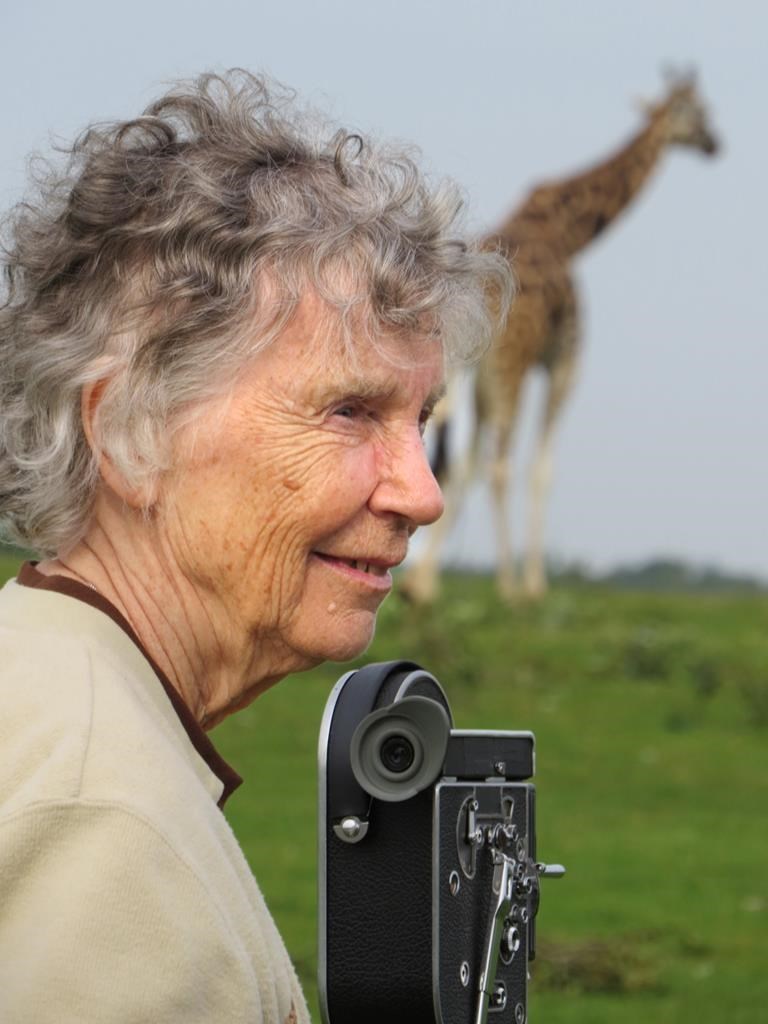For decades, Anne Innis Dagg was the world’s leading expert on giraffes and a staunch advocate for gender equality in the face of sexist attitudes that derailed her academic career.
But even as she compiled “binders and binders” of her research and advocacy work, the Waterloo, Ont., zoologist and feminist was never motivated by accolades, her daughter said.
"She was slogging away doing all of these things for no other reason than she thought it was the right thing to do,” Mary Dagg said in an interview Tuesday, three weeks after her mother’s death.
Innis Dagg died on April 1 at the age of 91, a few years after an award-winning documentary about her career and life – “The Woman Who Loves Giraffes” – put her accomplishments in the spotlight.
The 2018 film, directed by Alison Reid, revisited Innis Dagg’s solo journey in 1956 to study giraffes in the wild in South Africa. It was a pioneering trip by a western scientist who was just 23 years old and had no institutional backing.
"Mom was there before Jane," Dagg said, referring to Jane Goodall, the British primatologist who famously studied chimpanzees in Africa, primarily Tanzania.
The documentary also highlighted Innis Dagg’s struggles with sexism in academia and the obstacles she faced despite her groundbreaking research and published work that includes the seminal book “Giraffe: Biology, Behaviour and Conservation.”
She earned a PhD in animal behaviour from the University of Waterloo and worked as an assistant professor at the University of Guelph’s zoology department but was denied tenure in the 1970s. That was a devastating blow to her career but it inspired her lifelong fight for women’s rights, her daughter said.
Innis Dagg, who was appointed to the Order of Canada in 2019, wrote several books on feminism, including “MisEducation: Women and Canadian Universities.” She fought against systemic discrimination and wrote letters to various institutions advocating for women’s rights and freedom of choice, Dagg said.
She recalled her mother visiting the Royal Ontario Museum in Toronto in the 1980s and noticing that a lot of exhibits focused solely on men and their environments. She wrote a letter to the ROM expressing her dismay and the curator wrote back saying changes would be made.
“If something was wrong, she was going to do whatever it took to make it right,” Dagg said.
After other "giraffologists" sought out Innis Dagg in the 2010s, she began attending events and gaining long-overdue recognition for her animal expertise.
“The Woman Who Loves Giraffes” generated widespread interest in Innis Dagg’s work and gave the scientist an opportunity to soak up the applause at the end of film screenings she attended, her daughter said.
“People would always stand up. It would always be a standing ovation, and mom would come to the stage and, you know, she'd be gleaming,” she remembered.
At some question-and-answer sessions people would ask Innis Dagg, who was a daughter of academics, if she was glad that she didn’t get tenure because that put her on a different path in life.
“And she said, ‘Well, I would have preferred to be a professor … my dad was a professor, my husband was a professor. Why can't I be a professor?’” Dagg said. “And I think at the end of the day, that's really what she wanted.”
After the film's release, the University of Guelph formally apologized to Innis Dagg for the discrimination she experienced and established a research scholarship in her honour.
The interest sparked by the documentary also inspired the creation of the Anne Innis Dagg Foundation, where Mary Dagg serves as CEO.
The foundation's mission is to preserve the habitats of giraffes and wildlife through education and conservation – efforts that will continue with a sharpened focus on climate change, Dagg said.
"The plan is, really, to keep going," she said. "My mom's vision was huge, and there's still lots of work to be done."
Innis Dagg is also survived by her sons Hugh and Ian, her brother, and other family members.
This report by The Canadian Press was first published April 24, 2024.
Sonja Puzic, The Canadian Press

